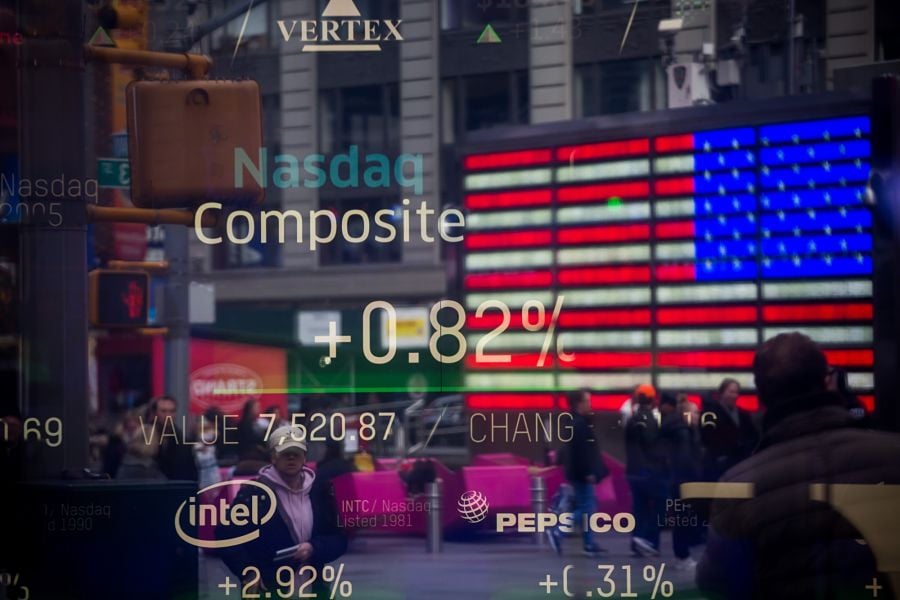

Last year, five U.S. professors opened two brokerage accounts and placed identical orders to test an algorithm. The next day, one was down by $150. The other was up $12.
They discovered it wasn’t a one-time anomaly.
Over more than five months, the academics used their own funds to execute 85,000 trades in 128 different stocks and made what they consider an important discovery: They were getting significantly different prices to buy and sell shares, depending on which brokerage handled the trade. Extrapolating from the results, they estimate it costs small-time U.S. investors as much as $34 billion a year, said Christopher Schwarz, the finance professor at the University of California, Irvine who wrote the study along with four colleagues.
The paper indicates there are hidden costs to the day trading that’s proliferated along with no-fee brokerage accounts. That’s because even though trades are funneled through a handful of wholesale market makers, including Citadel Securities and Virtu Financial Inc., the pricing can vary, according to the paper. And those small discrepancies can have a large impact overall.
“Brokers are getting very different execution quality at the same market center,” Schwarz said in an interview. “Based on the data, market centers have an incredible power over brokers.”
The overall cost figure is an estimate of what investors would save if their orders were executed by the best performing of the five brokers in the study instead of the fourth best. It estimates that some $20 billion of execution costs would be saved if trading costs were cut by 0.10%.
In their experiment, the professors placed their trades simultaneously with five different brokers, all of which offered zero-commission trading. Only some of them had payment-for-order-flow deals with market makers, an arrangement that allows large trading firms to buy orders from retail intermediaries. Such arrangements have drawn scrutiny since the start of the pademic’s meme-stock frenzy because the interests of brokers and markers can be aligned, potentially at the cost of investors. But the study found it had little impact.
There was, however, a “very large variation” in prices achieved from buying and selling stocks at different brokers, with the execution of some trades costing 10 times more — as measured by the basis-point spread that was charged — when made through one intermediary than with another.
Out of the six market makers that handled the orders in the experiment, more than 60% of all orders eventually went to Citadel Securities and Virtu. A spokesperson from Virtu declined to comment.
Joe Mecane, head of execution services at Citadel Securities, said the paper shows that “payment for order flow has no impact on the prices” investors pay. He also said it shows that investors get “good execution because they get better prices” than the benchmark for bid-ask spreads across exchanges.
Schwarz said the study results suggest that some brokerage firms have managed to negotiate better terms with major market makers than others, resulting in vastly different outcomes for clients. He said that suggests there should be heightened scrutiny of the market makers that dominate an industry that executes the roughly $28 trillion worth of U.S. retail stock orders each year.
To be sure, some degree of pricing variation is normal in any market. Differences can arise because of changes in liquidity, volatility and market conditions, as well as the kind of order sent to the exchange.
The study authors also said their analysis was limited to one aspect of brokerage trading — the execution price. There are other qualities in a brokerage that customers may prioritize, such as the range of securities available, research and trading tools.
The contracts negotiated between brokers and market makers are private. But Robinhood Markets Inc.’s December 2020 settlement with the Securities and Exchange Commission shed some light on the conflicts of interest between brokerages and their clients. According to the SEC’s settlement order, unidentified market makers told Robinhood that they would have to provide worse prices if the broker wanted to get a larger share of overall profits from the trades it routed through the firms.
Schwarz said regulators should demand clearer disclosures about the costs investors pay and how the agreements between brokers and market makers affect them.
“It should be easier to figure out the costs than for me and my friends to do this with our own money,” he said. “We’d never have been able to figure out these costs based on public disclosures, and this needs to change.”

Looking to refine your strategy for investing in stocks in the US market? Discover expert insights, key trends, and risk management techniques to maximize your returns

The RIA led by Merrill Lynch veteran John Thiel is helping its advisors take part in the growing trend toward fee-based annuities.

Driven by robust transaction activity amid market turbulence and increased focus on billion-dollar plus targets, Echelon Partners expects another all-time high in 2025.

The looming threat of federal funding cuts to state and local governments has lawmakers weighing a levy that was phased out in 1981.

The fintech firms' new tools and integrations address pain points in overseeing investment lineups, account monitoring, and more.
RIAs face rising regulatory pressure in 2025. Forward-looking firms are responding with embedded technology, not more paperwork.
As inheritances are set to reshape client portfolios and next-gen heirs demand digital-first experiences, firms are retooling their wealth tech stacks and succession models in real time.
